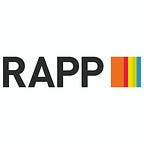How data can help the travel industry transform its approach to loyalty
Jon Pollard, client solutions director, RAPP UK, asks if the travel industry is capable of extracting the right information to give consumers what they want.
Travel is a sector awash with data: travel brands have access to volumes of data relating to individual travellers that would be the envy of many other sectors. Think about the all the directly provided datapoints such as name, email, then add the inferred data such as how far in advance travellers book, duration of trip and level of flexibility.
So with all this data, why do we only see a relatively limited range of approaches to using it, most commonly a static loyalty scheme based on a model of tiered membership and benefits based on annual purchases?
With so much data at our fingertips, there is so much more potential to create a truly standout customer experience and a loyalty scheme that works.
It’s time for a rethink, and travel companies need to create a new value exchange and reset their relationship with customers. They can do this by unlocking a new loyalty using control, choice and truly personal experiences.
Control through transparency
What is needed to create a standout relationship with consumers is an openness about what consumer data can do for both the consumer and the brand.
The message should be: “We’re collecting this data because it helps us to work more effectively, which means we can offer you this benefit.”
Airbnb, which tells users why all profile data is needed and how it’s used, is leading the way here, and what is more, does this in a tone and style that feels engaging and on-brand. At base, it’s just another form, but the layer on top of the form makes the difference.
This is the first key for travel brands: find creative, informative and authentic ways to show people what uses their data is being put to and why it matters, while reassuring them where control lies.
Choice
Deliver choice to consumers by surprising and delighting. Travel is all about exploration, after all. Consumers are looking for a relationship that crosses the boundaries from functional or transactional needs to one that plays on inspiration, emotion and surprising experiences.
So, use data intelligently to bring relevant new content, ideas or information to the consumer, as well as anticipating and delivering on their needs. Examine every data capture point and understand how it can be used to provide consumer choice. And then execute on it.
An example of a travel brand going in the right direction is Virgin Atlantic Airways’ Ready To Fly programme, which combines pre-trip operational messages with ‘Excite and Delight’ content designed to help passengers find new experiences while at their destination. Delivered via a personalised portal page that gives access to content, utility and opportunities for extra engagement like an online upgrade auction, the programme introduces new value to the relationship.
Be personal
The third benefit travel customers want is more tailored products and services. Of even greater interest to travel brands should be the data showing that Generation Y respondents are particularly enthusiastic about receiving real, personalised experiences — the upcoming consumer base is looking for change.
It’s also important to note that regular online review writers also index highly. Give the people who talk about it something to talk about.
Be personal
The third benefit travel customers want is more tailored products and services. Of even greater interest to travel brands should be the data showing that Generation Y respondents are particularly enthusiastic about receiving real, personalised experiences — the upcoming consumer base is looking for change.
It’s also important to note that regular online review writers also index highly. Give the people who talk about it something to talk about.
A fundamental shift
Getting to the destination requires a fundamental change in direction. We know from our own research that there is an appetite among consumers for this new kind of relationship with travel brands; a relationship rooted in brands’ use of personal data to deliver mutually beneficial outcomes.
In this post-GDPR world, the timing could not be better for the industry to start extracting the meaningful data that will enable them to start trailblazing new and effective loyalty schemes for their customers. Who’s game?
This article originally ran on Travel Daily Media on 8 August, 2018
By Global Solutions Director, Jon Pollard
